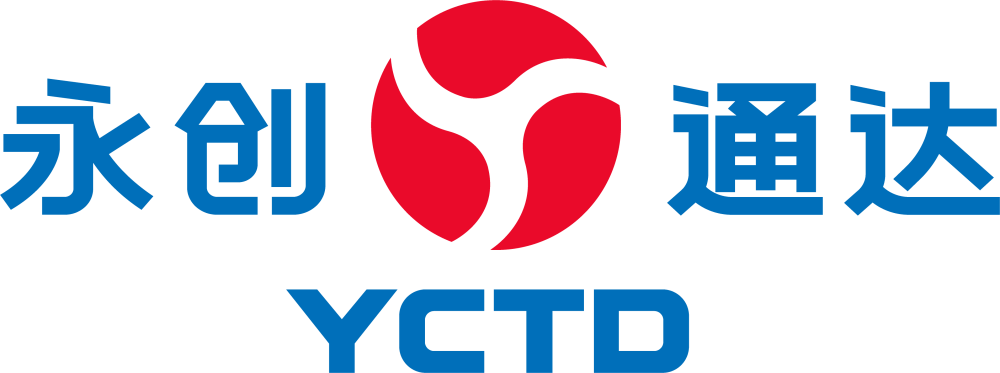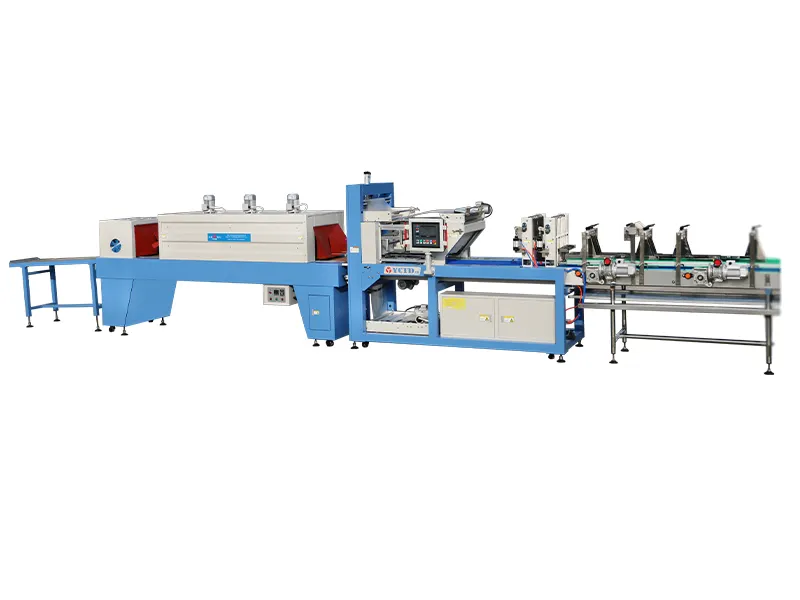The Evolution of Packaging Automation in Modern Manufacturing
The manufacturing landscape has undergone a dramatic transformation in recent years, with robotic case packers emerging as a cornerstone of efficient production lines. These sophisticated machines have revolutionized the way products are packaged and prepared for distribution, marking a significant leap forward from traditional manual packing methods. As industries face increasing pressure to optimize operations and reduce costs, robotic case packers have become indispensable assets in modern factories.
The integration of robotic case packers represents more than just a technological upgrade – it's a strategic response to evolving market demands for higher productivity, consistent quality, and improved workplace safety. These automated systems have proven their worth across diverse industries, from food and beverage to pharmaceuticals and consumer goods.

Operational Excellence Through Automation
Speed and Precision in Action
Robotic case packers excel in maintaining consistent high-speed operations without compromising accuracy. These systems can handle hundreds of products per minute, significantly outpacing manual packing processes. The precision of robotic movements ensures that each product is handled with exact specifications, minimizing the risk of damage and maintaining product integrity throughout the packaging process.
Advanced vision systems and sensors enable robotic case packers to adapt to various product sizes and configurations in real-time. This flexibility allows manufacturers to run multiple SKUs on the same line with minimal changeover time, maximizing operational efficiency and production capacity.
Cost-Effective Production Solutions
While the initial investment in robotic case packers may seem substantial, the long-term financial benefits are compelling. These systems dramatically reduce labor costs associated with manual packing operations. Moreover, they minimize product waste through precise handling and reduce packaging material consumption through optimized case utilization.
The reliability of robotic case packers translates to fewer production interruptions and lower maintenance requirements compared to conventional packaging systems. This improved uptime directly contributes to higher production volumes and better return on investment.
Enhanced Safety and Quality Control
Workplace Safety Improvements
One of the most significant advantages of robotic case packers is their ability to handle repetitive, physically demanding tasks that often lead to worker fatigue and injury. By automating these operations, manufacturers can significantly reduce workplace accidents and repetitive strain injuries. This not only protects employees but also reduces workers' compensation costs and improves overall workplace morale.
Modern robotic case packers incorporate advanced safety features, including light curtains, emergency stops, and intelligent motion control systems. These safety measures ensure that human operators can work alongside the machines without risk, creating a safer manufacturing environment.
Consistent Quality Assurance
Quality control takes on new dimensions with robotic case packers. These systems maintain unwavering consistency in product handling and packaging, eliminating variations that commonly occur with manual operations. Built-in inspection systems can detect and reject defective products or packaging, ensuring that only perfect cases proceed to shipping.
The precision of robotic case packers extends to gentle product handling, particularly crucial for delicate items. This careful manipulation reduces product damage and returns, ultimately enhancing customer satisfaction and brand reputation.
Smart Manufacturing Integration
Data-Driven Operations
Modern robotic case packers are equipped with sophisticated sensors and monitoring systems that generate valuable operational data. This information enables manufacturers to track performance metrics, identify bottlenecks, and optimize production parameters in real-time. The integration with manufacturing execution systems (MES) provides comprehensive visibility into the packaging operation's efficiency.
The ability to collect and analyze data from robotic case packers helps in predictive maintenance planning, reducing unexpected downtime and extending equipment life. This data-driven approach to maintenance optimization represents a significant advantage over traditional packaging systems.
Industry 4.0 Compatibility
Robotic case packers seamlessly integrate with Industry 4.0 initiatives, supporting the vision of smart factories. These systems can communicate with other production equipment, warehouse management systems, and enterprise resource planning (ERP) software, creating a connected manufacturing ecosystem. This interconnectivity enables automated inventory management, production scheduling, and resource optimization.
The flexibility of robotic case packers allows manufacturers to quickly adapt to changing market demands and production requirements. Through programmable controls and modular design, these systems can be reconfigured to handle new products or packaging formats with minimal disruption.
Environmental Benefits and Sustainability
Resource Optimization
Robotic case packers contribute significantly to environmental sustainability through precise material usage and reduced waste generation. These systems optimize packaging material consumption through accurate measurements and controlled dispensing, resulting in less packaging waste. The ability to consistently pack products with minimal void space also reduces transportation costs and environmental impact.
The energy efficiency of modern robotic case packers, combined with their ability to operate continuously without breaks, results in lower power consumption per unit packed compared to traditional methods. This energy optimization aligns with manufacturers' sustainability goals and regulatory requirements.
Sustainable Manufacturing Practices
The adoption of robotic case packers supports broader sustainability initiatives in manufacturing. These systems can be programmed to work with eco-friendly packaging materials and adapt to new sustainable packaging designs. The precision handling capabilities ensure optimal usage of biodegradable or recycled materials without compromising packaging integrity.
By reducing product damage and optimizing package sizes, robotic case packers help minimize the carbon footprint associated with returns and reshipments. This efficiency in the packaging process contributes to more sustainable supply chain operations.
Frequently Asked Questions
What is the typical return on investment for robotic case packers?
The ROI for robotic case packers typically ranges from 18 to 36 months, depending on factors such as production volume, labor costs, and specific application requirements. Many manufacturers report faster payback periods due to immediate efficiency gains and labor cost savings.
How do robotic case packers handle different product sizes?
Robotic case packers use advanced vision systems and programmable controls to automatically adjust to different product dimensions. Quick-change tooling and recipe management systems allow for rapid changeovers between different product sizes and packaging configurations.
What maintenance is required for robotic case packers?
Modern robotic case packers require minimal maintenance compared to traditional packaging systems. Regular maintenance typically includes routine inspections, lubrication of moving parts, and periodic software updates. Many systems also feature predictive maintenance capabilities that alert operators to potential issues before they cause downtime.
Can existing packaging lines be upgraded with robotic case packers?
Yes, most existing packaging lines can be retrofitted with robotic case packers. Modern systems are designed with modular components and flexible integration options to accommodate various line configurations. Professional system integrators can assess current operations and recommend optimal upgrade strategies.

